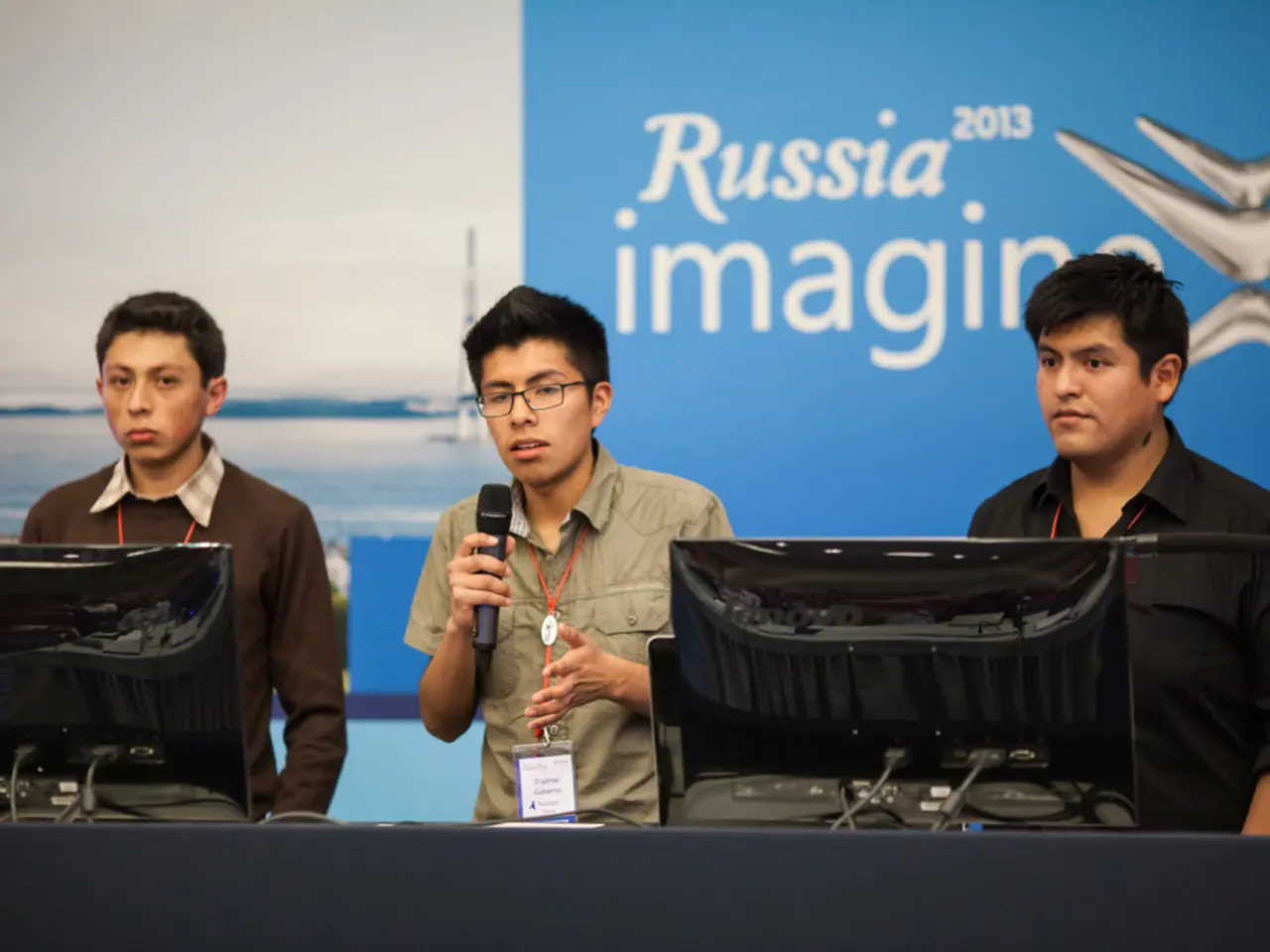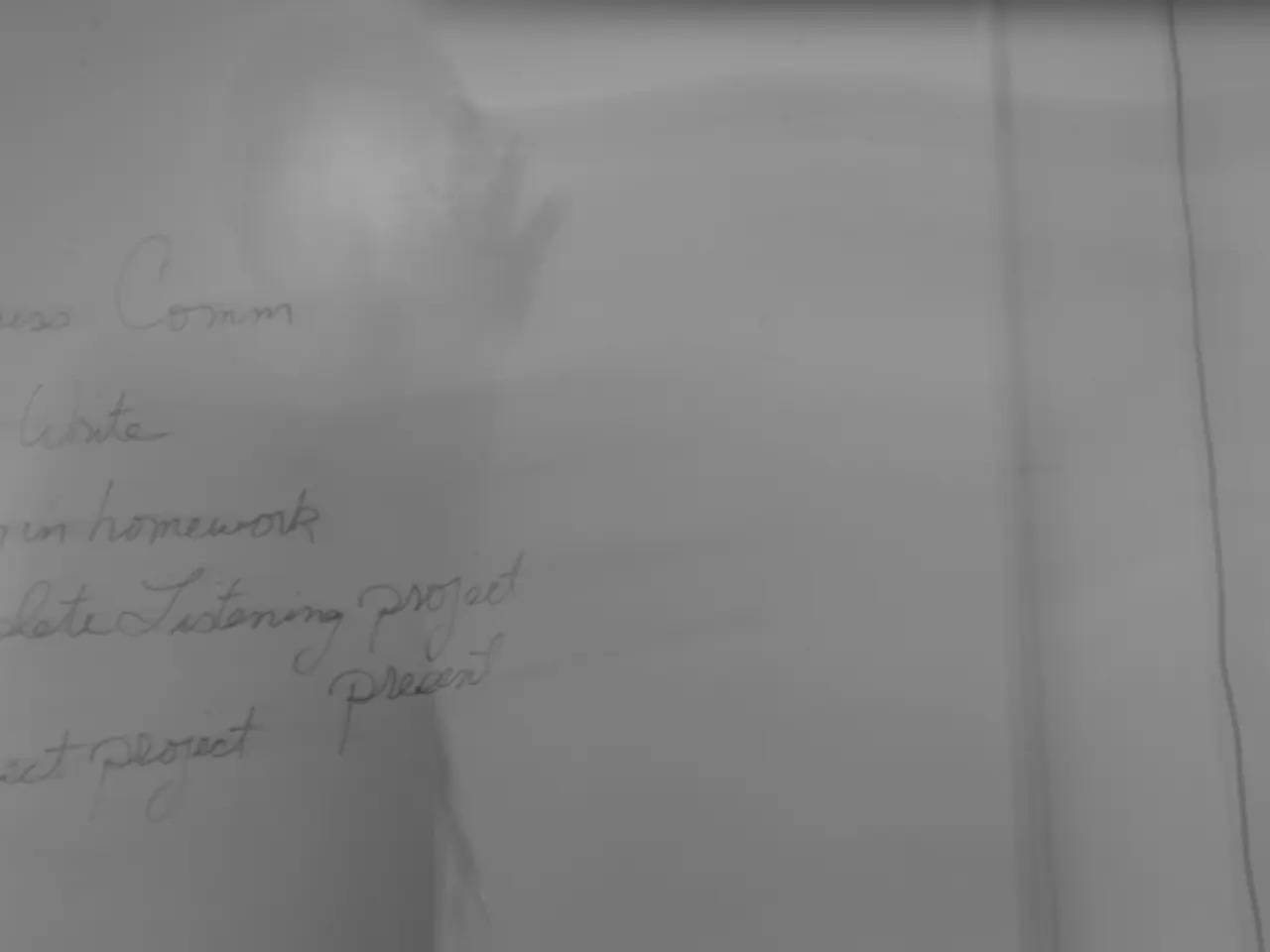United States Diplomats discuss Ukraine conflict: Trump leverages America's economic might in relation to the war in Ukraine
In a move aimed at resolving the long-standing Russia-Ukraine conflict, the United States and Russia have agreed to a meeting between President Donald Trump and Vladimir Putin in the near future. The announcement was made following a conversation between Trump, Ukrainian President Vladimir Zelensky, and European leaders.
According to reports, a trilateral meeting with Zelensky is expected to follow Trump's meeting with Putin. The details of the U.S.'s "favorable" proposal on Ukraine, as reported by the Polish outlet Onet, remain undisclosed.
President Trump's strategy to end the conflict heavily relies on leveraging the United States' economic power. This strategy involves imposing sanctions and tariffs on Russia and its trading partners, such as a 50 percent tariff on Indian imports of Russian oil. The aim is to weaken Russia's economy and force Putin to negotiate peace from a position of disadvantage.
However, analysts caution that Putin has prepared Russia to withstand these economic hardships. Russia continues to export energy to countries like China and India, diminishing the impact of U.S. economic measures. While Trump believes economic sanctions and tariffs are a significant leverage tool, experts point out that Russia's ability to sustain its war economy through alternative markets and its military gains in eastern Ukraine mean that economic pressure alone may not compel a Russian withdrawal or ceasefire.
Moreover, tariff policies risk unintended consequences such as rising global oil prices that could politically harm Trump domestically and complicate trade negotiations with major powers like China and India.
In sum, Trump's negotiation strategy factors in the United States' economic power as a critical leverage point to bring Russia to the table and extract concessions. However, Russia's economic resilience, military positioning, and geopolitical maneuvers complicate the effectiveness of this approach. The economic pressure contributes to the diplomatic dynamics but does not guarantee a quick or decisive end to the conflict.
The U.S. President's envoy, Steve Whitcoff, had a meeting with Russian leader Vladimir Putin to discuss potential formats for leader-level meetings. The outcome of these discussions remains to be seen as the world watches with bated breath for the developments in the Russia-Ukraine conflict.
- The ongoing Russia-Ukraine conflict is a topic of significant interest in the realm of war-and-conflicts, politics, and general news, as the United States and Russia work towards meetings to discuss potential resolutions.
- As part of President Trump's diplomatic efforts, the policy-and-legislation aspect of imposing tariffs on Russia and its trading partners, such as India, is intended to apply economic pressure, though experts question its effectiveness due to Russia's economic resilience.







